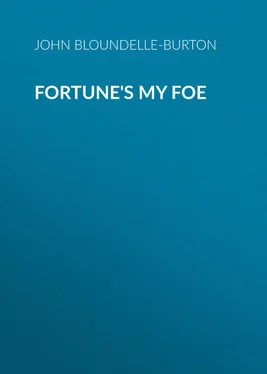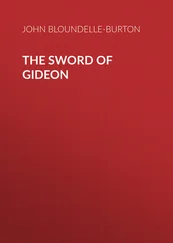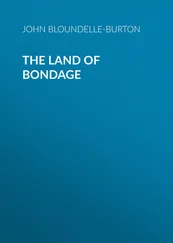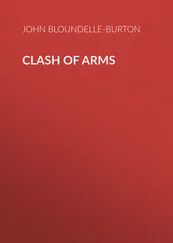John Bloundelle-Burton - Fortune's My Foe
Здесь есть возможность читать онлайн «John Bloundelle-Burton - Fortune's My Foe» — ознакомительный отрывок электронной книги совершенно бесплатно, а после прочтения отрывка купить полную версию. В некоторых случаях можно слушать аудио, скачать через торрент в формате fb2 и присутствует краткое содержание. Издательство: Иностранный паблик, Жанр: foreign_antique, foreign_prose, на английском языке. Описание произведения, (предисловие) а так же отзывы посетителей доступны на портале библиотеки ЛибКат.
- Название:Fortune's My Foe
- Автор:
- Издательство:Иностранный паблик
- Жанр:
- Год:неизвестен
- ISBN:нет данных
- Рейтинг книги:5 / 5. Голосов: 1
-
Избранное:Добавить в избранное
- Отзывы:
-
Ваша оценка:
- 100
- 1
- 2
- 3
- 4
- 5
Fortune's My Foe: краткое содержание, описание и аннотация
Предлагаем к чтению аннотацию, описание, краткое содержание или предисловие (зависит от того, что написал сам автор книги «Fortune's My Foe»). Если вы не нашли необходимую информацию о книге — напишите в комментариях, мы постараемся отыскать её.
Fortune's My Foe — читать онлайн ознакомительный отрывок
Ниже представлен текст книги, разбитый по страницам. Система сохранения места последней прочитанной страницы, позволяет с удобством читать онлайн бесплатно книгу «Fortune's My Foe», без необходимости каждый раз заново искать на чём Вы остановились. Поставьте закладку, и сможете в любой момент перейти на страницу, на которой закончили чтение.
Интервал:
Закладка:
"If I were a scoundrel," he mused to himself with extreme complacency, "who was pursuing the girl with some other object than that of obtaining possession of her fortune, how I might hoodwink her! Granger, if kept sober till midday, could play the parson sufficiently well to throw dust in her eyes. But not in such a case as this should it be done. No. No! my beauteous Ariadne. Not in such a case as this. You shall be tied up devilish tight, so tight that never shall you escape your bonds with Algernon Bufton; so fast that my demise alone shall cancel them. You are not one of the pretty helpless fools whom villains deceive.
"A fine property, too," he mused, casting a dark eye around, "a fine property. The trees alone would sell for much if cut down. Yet-yet-we must not come to that. An avenue gives ever an imposing- Hist! What is this? Some country clown, by the way he sings to himself. Perhaps a rival."
Whereon, true to himself, Beau Bufton assumed a haughty, indifferent air as he strode along, and drew down his lips into the well-known Bufton sneer, as he considered it.
The person of whom he spoke, and who was quite visible in the evening gloaming, was now drawing near, and Bufton decided that he had guessed aright when he imagined him to be a country clown. A country squire perhaps; but no more.
This person's face, he could observe, was an extremely good-looking one, though marvellously brown and sunburnt-probably, the Beau thought, from common country pursuits-a handsome English face indeed, from which looked forth two bright blue eyes. Also he was tall and well-set, though perhaps his figure was not exhibited to its best advantage owing to a rolling gait. In his apparel he showed that he was a gentleman, his coat of blue cloth being of the best, while his lace, although not costly, was that which a person of position might wear. By his side he carried a sword which evoked the deepest disdain from Bufton, since it was but a common whinyard in a black leather case, and boasted only a brass handle and hilt. For the rest, he was a young man of the Beau's own age.
As they drew close to each other in the twilight, this young man fixed those blue eyes on Bufton's face with an extremely keen glance; a glance so penetrating that the other whose nose was in the air, and whose chin was stuck out in front of him, knew well enough that he was being scanned from head to foot. Then, before he could progress more than another step or so, he was startled by hearing the new-comer address him.
"My friend," that person said, "have you not lost your way? Or are you not aware that this is private ground, the property of Miss Thorne?" For a moment the Beau could scarcely believe his ears. To be addressed as "his friend" by a person of this description! A country clod, and in a plain blue coat!
"My good fellow," he said, with now his choicest sneer, "is it not possible that the lady you mention may occasionally receive visitors other than the rural inhabitants of this neighbourhood?"
"Extremely possible," the new-corner replied, "since she deigns to receive me, who am not of this neighbourhood. But, since I happen to have a very strong and tender interest in Miss Thorne, may I make so bold as to ask if you have been received as a visitor by her to-night?"
It was, perhaps, as it happened at this juncture, a little unfortunate that Bufton had never accepted his friend Granger's estimate of him as a more just one than that which he had long since formed of himself. For the latter, in "coarse and ruffianly language," as the Beau termed it, always took great delight in telling him that he didn't know himself. "You are not as clever as you think, my friend," he would say again and again; "you are not astute, and, indeed, without my assistance you would be but a sorry knave. Also, your absurd belief in your powers of ridicule, the use of which is always the mark of either an envious person or a fool, will some day get you into trouble. I wish you could be more intelligent." Which advice was, however, entirely thrown away on Bufton, who was a man strong in his own conceit. And, perhaps, after all, he had a right to be so, since he had undoubtedly perpetrated many knavish tricks very successfully during his career.
But now his folly and his idea of his own importance ran away with him; while, at the same time, the reticence on which he prided himself-and truly so in unimportant matters, though he could blab freely on matters that should be kept secret-was shown to be the useless thing it was.
"Young man," he said, "you forget yourself, allow yourself an unpardonable license when you state that you have a strong and tender interest in Miss Thorne. Such a thing is impossible in one of your condition-indeed, in any one-now!"
"Why, you scurvy dog!" the other answered, approaching him-and now his blue eyes blazed indignantly, while his brown face seemed to assume a deeper hue-"you dare to speak thus to me-you jackanapes. Begone from off this place at once, ere I kick you down the avenue. Who are you, you bedizened mountebank, who dares put his foot here? Begone, I say, at once!"
That calmness is a mark of the truly great had long been an axiom of Beau Bufton; while he was also aware that those who possess such terrible powers of ridicule and contempt as were his, must never stoop to bandy words with others-since, thereby, even a clown might find a loophole for retaliation. Nor did he forget those axioms now, even though his blood boiled at being addressed as he had just been. But, on the other hand, none could be allowed to make such remarks to him-especially not he who had the monstrous temerity to state that he had a strong and tender interest in Miss Thorne. In Miss Thorne-the girl who, not a quarter of an hour ago, had promised to be his wife within a fortnight-the girl who had a hundred thousand guineas for portion!
"My good man," he said, "you carry a sort of weapon at your side."
"Ay, I do. A good one, too."
"Draw it, then. I must teach you a lesson. I presume you are of some standing; that I may cross swords with you. You perhaps may be considered a gentleman-"
"At least I have the gentleman's trick of knowing how to use a small sword. Come, let us make an attempt. Lug out. Come."
Not being wanting in personal courage, while feeling very sure, too, that Renoud had taught him all that there was to be learnt at the fence school in Marylebone, the Beau drew forth from its scabbard the bright new blade which, for the first time, he had hung by his side to-night, and put himself upon his guard. Yet he could have wished that his calm and dignified manner had more favourably impressed his antagonist, and that he had not drawn his own common-looking blade with such an easy air. It was, he thought, an air far too self-confident for a yokel to assume. However, there was a lesson to be taught, and he must teach it.
"You have ventured to state," he said, "that you have a tender interest in Miss Thorne. If you will withdraw those words-"
"Curse you!" the other said furiously. "You dare to mention her name again. Have at you!" and in a moment their swords were crossed.
Then Beau Bufton knew that he could not possibly be dealing with a gentleman. For his opponent seemed utterly oblivious of every form and method of recognised attack and defence, and, what was more, parried every one of his choicest thrusts-even Renoud's low quarte, which was thought so well of; while he also had the gross vulgarity to parry a sweet flanconnade with his left hand. And the fellow had made him positively warm! Nevertheless, he seemed to know more than was desirable, since he had an accursed acquaintance with the old contretemps , or coup fourré , which was a dangerous knowledge for one's antagonist to possess.
In truth, Bufton began to think (although scarcely could it be possible that Heaven would ever permit such an outrage) that this provincial was very likely to stretch him ere long upon the soft grass beneath his feet. A thing that, if ever known, must load his memory with eternal disgrace. He a beau, a maître des escrimeurs , to be laid low by such a one. It must not be. He must try the botte coupée . He did try it-and it failed! While to make matters worse, his bucolic adversary laughed at him.
Читать дальшеИнтервал:
Закладка:
Похожие книги на «Fortune's My Foe»
Представляем Вашему вниманию похожие книги на «Fortune's My Foe» списком для выбора. Мы отобрали схожую по названию и смыслу литературу в надежде предоставить читателям больше вариантов отыскать новые, интересные, ещё непрочитанные произведения.
Обсуждение, отзывы о книге «Fortune's My Foe» и просто собственные мнения читателей. Оставьте ваши комментарии, напишите, что Вы думаете о произведении, его смысле или главных героях. Укажите что конкретно понравилось, а что нет, и почему Вы так считаете.












